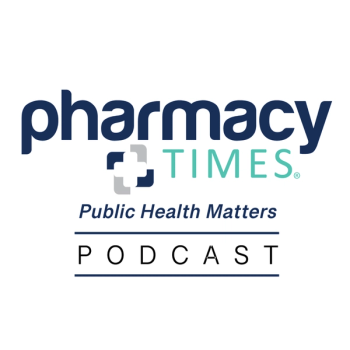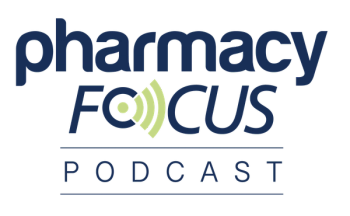
Automation and artificial intelligence can also aid significantly in reducing time-consuming tasks and improving efficiency for pharmacists, allowing them more time with patients.

Automation and artificial intelligence can also aid significantly in reducing time-consuming tasks and improving efficiency for pharmacists, allowing them more time with patients.

As the end of the DSCSA stabilization period approaches, Josh Bolin from the NABP provides an overview of what to expect.

Pharmacy students discuss a non-traditional learning assignment that used the social media platform, TikTok.

Childhood immunization according to schedule can prevent serious illness.

Erin McConnell, PharmD, discuss the clinical decision-making process for choosing between statins, PSCK9 inhibitors, or newer agents like inclisiran.

Erin McConnell, PharmD, discusses the importance of effective cholesterol management for preventing heart disease.

Experts highlight how leveraging organizational scale, data analytics, and community partnerships can enable independent pharmacies to identify and address pharmacy deserts.

As the end of this Congress approaches, the National Community Pharmacists Association is lobbying members to pass pharmacy benefit manager reforms.

The chief product and strategy officer at Linus Health is hopeful that pharmacists can be key players in the detection of mild cognitive impairment.

Tune into this episode of “Public Health Matters” to learn about the Unbiased Science podcast and how guest Jessica Steier, DrPH, PMP, aims to combat misinformation and disinformation, encouraging listeners to make evidence-based decisions.

The combination of amivantamab and lazertinib showed improved intracranial efficacy, progression-free survival, and overall survival for non-small cell lung cancer.

Pharmacy students discuss the value of collaborative, hands-on learning approaches that leverage technology and social media to enhance learning.

Tune into this episode of “Public Health Matters” to learn about the Unbiased Science podcast and how guest Jessica Steier, DrPH, PMP, aims to combat misinformation and disinformation, encouraging listeners to make evidence-based decisions.

Pharmacy students develop concept for exam augmented reality glasses for clinical situations and patient counsling.

Lazertinib with amivantamab was found to be similar in efficacy to osimertinib in the MARIPOSA study.

Pharmacists are encouraged to leverage their trusted community role to help manage the anticipated health care burden from respiratory infections this season.

A pharmacist with Allegheny Health Network discusses travel vaccines and what resources are valuable when determining which vaccinations are needed prior to travel.

Pharmacy professors discuss their experience implementing a TikTok activity in their curriculum, highlighting the benefits and challenges.

Lauren Posteraro, PharmD, a pharmacist with AHN, discusses how misinformation and access to technology can contribute to vaccine hesitancy.

Educators describe a project where they used TikTok to encourage students to develop innovative informatics and medication safety technologies for fun, engaging learning.

Discount Drug Mart's new pharmacists are excited about the expanding role of community pharmacy in providing personalized, patient-centric health care.

Pharmacy students discuss how they use social media platforms like TikTok, Instagram, and YouTube to reinforce their classroom learning.

Robert Walker discusses the updated COVID-19 vaccines targeting the new JN.1 lineage of the virus and the challenges of addressing vaccine hesitancy to protect individuals and communities.

In an initiative to close vaccine gaps in local Missouri communities, pharmacists and community health workers proved essential.

In an interview with Pharmacy Times, Jasmine Perry describes her idea of an effective health care delivery model and why research can have a huge impact at the policy level.

The Alzheimer disease treatment landscape is evolving with new FDA-approved antibody therapies and advancements in biomarker testing to enable earlier diagnosis and intervention.

Drawing on years of experience, Rina Shah explains how sustainable care models are essential for a thriving pharmaceutical industry.

In an interview with Pharmacy Times, Jon Easter discusses the need for pharmacy to align as a profession to achieve policy and research goals.

Tune into this episode of “Public Health Matters” to learn about how Healthcare Advocate Summit, created by advocates for advocates, is involved in the discussion on improving access to health care.

President of NACDS, Steve Anderson, discusses how the events at Total Store Expo reflect on the association's goals of innovation and a focus on public policy.